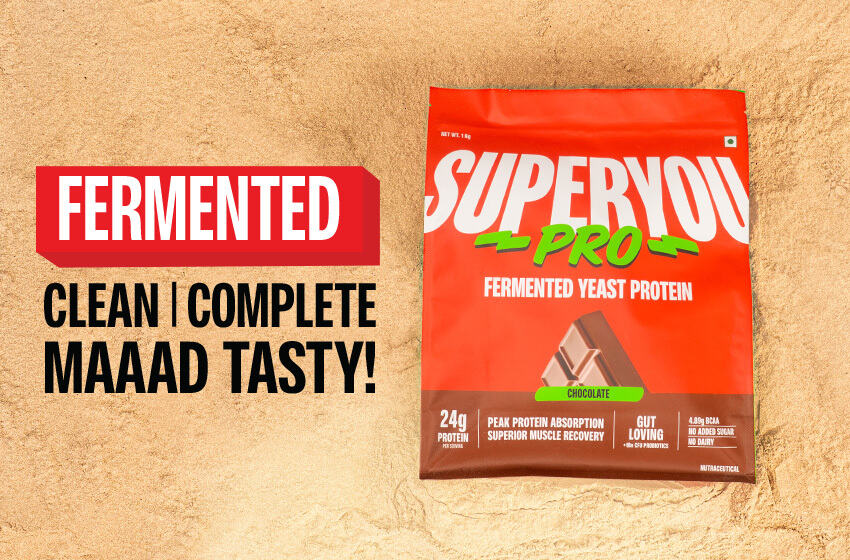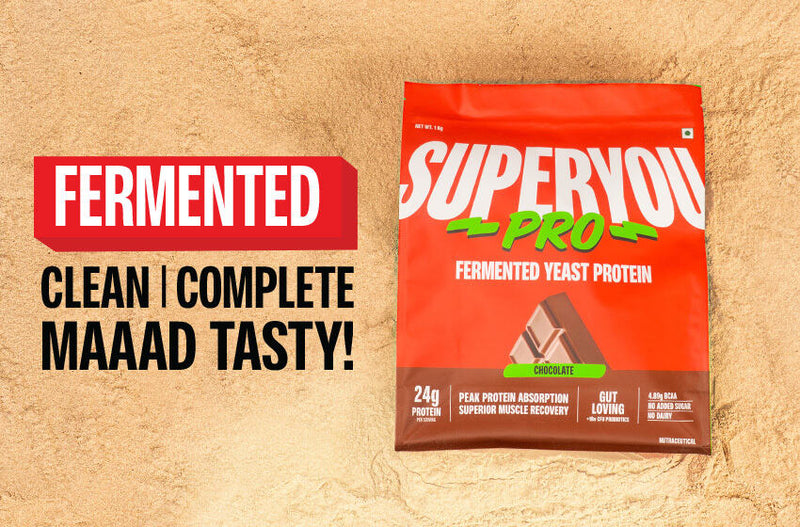Most protein powders are designed for individuals seeking to achieve performance goals. But what if your goal isn’t to lift heavier or bulk faster, but simply to feel better, manage symptoms, and reduce triggers? For people with autoimmune diseases or chronic inflammation, that’s the daily reality.
When your immune system is on high alert, even so-called “healthy” options can work against you. Protein is critical for healing, energy, and muscle preservation, but most mainstream powders are filled with ingredients that provoke the very flares you're trying to avoid.
That’s where fermented yeast protein comes in, a scientifically sound, allergen-free option that supports without overstimulating.
Beyond Muscles: Why Protein Is Essential for Immune Resilience
Protein is a foundational nutrient for everyone, but it becomes even more critical when your body is dealing with chronic inflammation or autoimmune activity. It plays a central role in:
-
Supporting tissue repair during immune attacks
-
Preserving lean muscle mass when fatigue or medication reduces activity
-
Modulating immune signalling through essential amino acids
-
Sustaining energy during flare-ups or recovery phases
However, not all proteins are absorbed in the same way, and some can actually do more harm than good when your gut is already compromised.
Where Common Proteins Fall Short
Whey Protein: Nutrient-rich but highly reactive
Whey protein is derived from milk during the cheese-making process and is celebrated for its complete amino acid profile. But for those with autoimmune issues, dairy is one of the most common inflammatory triggers. Even whey isolates marketed as "lactose-free" may contain trace amounts of proteins, such as casein or beta-lactoglobulin, which can trigger immune responses or exacerbate gut permeability.
Plant-Based Proteins: Cleaner in theory, but complex in practice
Popular plant blends made from pea, rice, or hemp aim to be inclusive, but they often fall short. These powders are frequently processed with gums, thickeners, and emulsifiers to improve texture and taste. Unfortunately, those same additives can irritate the gut lining. Many also lack a complete amino acid profile without fortification and may include soy or grain derivatives, both of which are excluded from many therapeutic diets.
A New Class of Protein Designed for Sensitive Systems
Fermented yeast protein powder is derived from Saccharomyces cerevisiae, the same yeast species used in baking and brewing, but through a controlled fermentation process that transforms it into a high-quality, bioavailable protein source. It’s neither animal-based nor dependent on legumes or grains, making it an entirely new class of clean, complete protein.
Unlike other options, fermented yeast protein is:
-
Allergen-Free by Origin, Not by Extraction
Because it’s derived from yeast, not dairy, soy, or nuts, it’s naturally free from the top 8 allergens. There’s no need for chemical isolation or “removal” of triggers. This makes it inherently suitable for autoimmune-friendly diets, such as the Autoimmune Protocol (AIP) and low-FODMAP diets. -
Fermented for Digestive Efficiency
The fermentation process breaks down complex protein structures, making amino acids more easily absorbed while reducing compounds that may otherwise irritate the gut. This means less bloating, better uptake, and minimal digestive stress. -
Naturally Complete
With a PDCAAS (Protein Digestibility-Corrected Amino Acid Score) of nearly 1.0, fermented yeast protein provides all nine essential amino acids, including leucine, isoleucine, and valine, which are critical for muscle repair and immune regulation. And it does this without synthetic additives or complex ingredient blending. -
Clean Label by Design
Fermented yeast protein requires no emulsifiers, sugar alcohols, or artificial stabilisers to stay shelf-stable. Its purity is a result of the process, not post-production filtering, making it one of the most minimal-intervention proteins available.
How to Use It Safely (And Comfortably)
Fermented yeast protein powder is mild in taste and blends easily into therapeutic diets. Whether during a flare or in maintenance mode, it can be integrated into:
-
Smoothies with low-inflammatory foods like berries, greens, or cucumber
-
Soft meals like oats or mashed vegetables
-
Healing broths or soups for easy nutrient absorption
Because it’s low-reactivity and easy on digestion, it doesn’t demand extra energy from your system to do its job; it simply supports, quietly and effectively.
A Quick Comparison: Protein Options for Sensitive Systems
|
Protein Type |
Inflammatory Triggers |
Digestibility |
Additives |
Autoimmune Friendly |
|
Whey |
Dairy, lactose, casein |
High (but reactive) |
Often high |
Often problematic |
|
Plant Protein Blends |
Soy, grains, emulsifiers |
Moderate |
High |
Case-specific |
|
Fermented Yeast Protein |
None (top 8 allergen-free) |
High |
Low |
Consistently safe |
The Smartest Protein for the Most Sensitive Systems
When your body is already managing a heightened immune response, you don’t need another variable working against you. You need protein that repairs, rebuilds, and nourishes, without the noise.
Fermented yeast protein powder doesn’t just tick the boxes for allergen-free or gut-friendly nutrition, it’s built to meet the needs of people whose bodies require extra care, not extra complications.
For those managing more, it might just be the first protein powder that feels like it’s actually on your side. Try SUPERYOU today.









